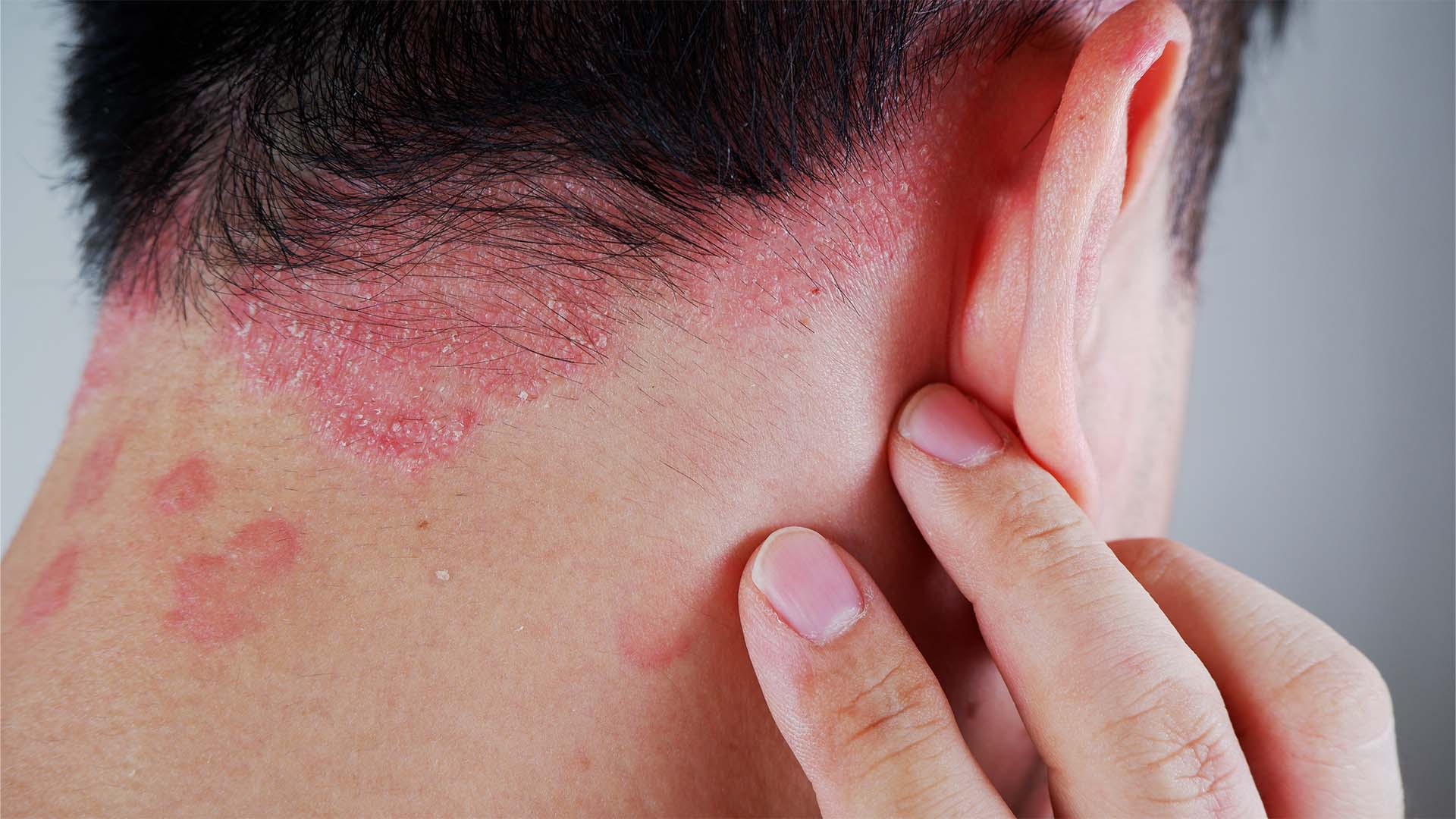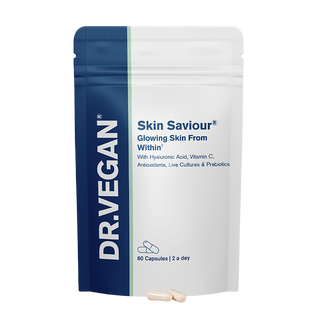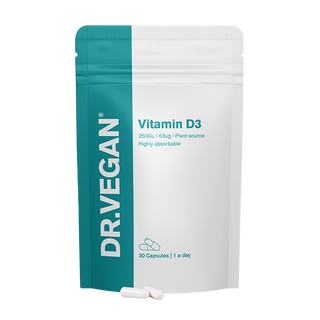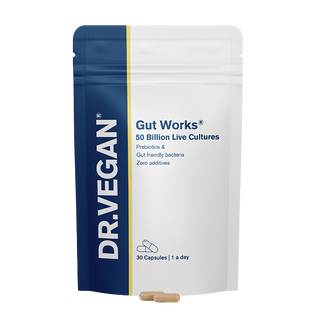Understanding and managing Psoriasis

By: Shona Wilkinson
Known for its distinctive appearance, psoriasis is a chronic autoimmune skin condition affecting millions globally, causing discomfort and impacting the quality of daily life. While there is no known cure, it can be effectively managed with diet and lifestyle changes.
What is psoriasis?
Psoriasis is characterised by the immune system attacking healthy skin cells, leading to the rapid growth of new cells and the formation of red, scaly patches known as plaques. Although it can affect any body part, it typically appears on the knees, elbows and scalp.
Causes and triggers
As an autoimmune disease, psoriasis is caused by a combination of genetic factors and lifestyle factors, largely linked to gut health. The gene responsible for autoimmune conditions, including psoriasis, is only expressed when conditions are right. These conditions include:
Poor gut health
The bacteria in the gut have a huge influence on the gut's health and function. If there is an unfavourable mix of bacteria, fungi and parasites, this could lead to leaky gut syndrome, where the gut barrier loses its function and triggers a systemic inflammatory state. Learn the worst foods for gut health and how to rebalance your gut.
The gut-skin axis also plays a huge role in skin health. The gut-skin axis refers to the complex bidirectional communication and interaction between the gastrointestinal system (gut) and the skin. This axis plays a crucial role in maintaining overall health and influences various physiological processes in both the gut and the skin. You may be interested in reading our latest skin health insights, where we found 88% of customers surveyed say their diet has an impact on their skin condition.*
Skin Saviour®

Psychological stress
Stress is a huge factor in psoriasis. One of the main reasons is that stress can trigger the development of a leaky gut. Stress also activates the body's 'fight or flight' response, releasing stress hormones including cortisol and adrenaline. These hormones can have an impact on the immune system, leading to immune system dysregulation. In psoriasis, this immune system disruption can trigger the overproduction of immune cells and inflammatory cytokines, contributing to the development or worsening of psoriatic plaques. Some foods are particularly good at providing nutrients the adrenal glands need to help our body cope with stress more effectively.
96% of people surveyed in our latest consumer survey say their level of stress affects the condition of their skin*, and more than half say their levels of stress have a big impact on their skin. Discover more in our effects of stress insights and our natural formula, Stay Calm™, for supporting signs of stress.
Low levels of Vitamin D
Low levels of Vitamin D may contribute to immune system dysregulation, leading to an overactive immune response. This immune dysfunction can result in an increased production of inflammatory cytokines and immune cells, which are known to play a role in the development and progression of psoriasis. Vitamin D is also essential for maintaining the integrity of the skin barrier. In individuals with low levels of Vitamin D, the skin barrier may be compromised, allowing irritants and pathogens to penetrate the skin more easily. This can trigger or exacerbate psoriasis flare-ups. Vitamin D deficiency has been linked to chronic inflammation, which is a hallmark feature of psoriasis. Inflammation can worsen existing psoriasis symptoms and lead to the formation of new psoriatic plaques.
Infections
For some, bacterial or viral infections, including streptococcal throat infections, can also trigger or exacerbate psoriasis.
Signs and symptoms
The signs and symptoms of psoriasis vary, but common ones include raised red patches covered with silvery-white scales, intense itchiness and scaly, dry patches. There are different types of psoriasis that may manifest in several forms, each with its own unique, distinctive characteristics:
- Plaque Psoriasis: the most common type, characterised by raised, red plaques with silvery scales.
- Guttate Psoriasis: small, drop-like lesions, often triggered by streptococcal infections.
- Inverse Psoriasis: smooth, red patches that appear in skin folds, including under the breasts or in the groin.
- Pustular Psoriasis: white pustules surrounded by red skin, often accompanied by fever and chills.
- Erythrodermic Psoriasis: widespread redness and shedding of scales, often covering large parts of the body.
You may also be interested in learning the symptoms of eczema and rosacea.
Can you cure psoriasis permanently?
While there is no permanent cure, managing psoriasis involves a holistic approach and experimentation.
- Omega 3 fatty acids found in algae oil, flaxseeds, chia seeds and walnuts can help. You can find our ethically and sustainably sourced Vegan Omega 3 in our Skin Health bundle.
- Antioxidant-rich foods like berries, citrus fruits, spinach, kale and sweet potatoes combat oxidative stress.
- Adequate Vitamin D levels are essential for immune function and skin health and often needs supplementing alongside sunlight exposure.
- Probiotics present in fermented foods and supplements, like Gut Works® and Skin Saviour®, support gut health and the gut-skin axis.
- Avoiding gluten and dairy provides relief for some individuals, as they can exacerbate inflammation. You may be interested in the signs of a gluten intolerance.
- Limiting processed foods and sugar can also helps to reduce inflammation and improve overall health. Discover 7 tips on how to reduce sugar cravings.
Additionally, incorporating mindful lifestyle changes like regular exercise, balanced diets and sufficient sleep helps to improve overall wellbeing and may positively impact psoriasis symptoms. Moisturising the skin regularly will also help reduce dryness and scaling. Identifying, understanding and avoiding triggers, including stress, infections or certain medications, is crucial in managing psoriasis effectively.
Discover our range of award-winning vegan supplements and probiotics.
*Based on a UK survey conducted by DR.VEGAN® of 96 customers, nationally representative, during May 2023. All customer survey findings reflect our own efforts and have not been influenced or verified by any external organisations or third-party entities.
You may also enjoy reading:
- How to get rid of acne
- How bad is tanning for skin health?
- Best foods and vitamins for glowing skin
- What men should know about skin health
- Why Zinc is so important for your hair and skin
Want to hear more from our nutritionists? Sign up to our email newsletter for insights and exclusive offers:




















